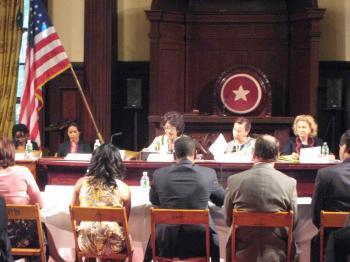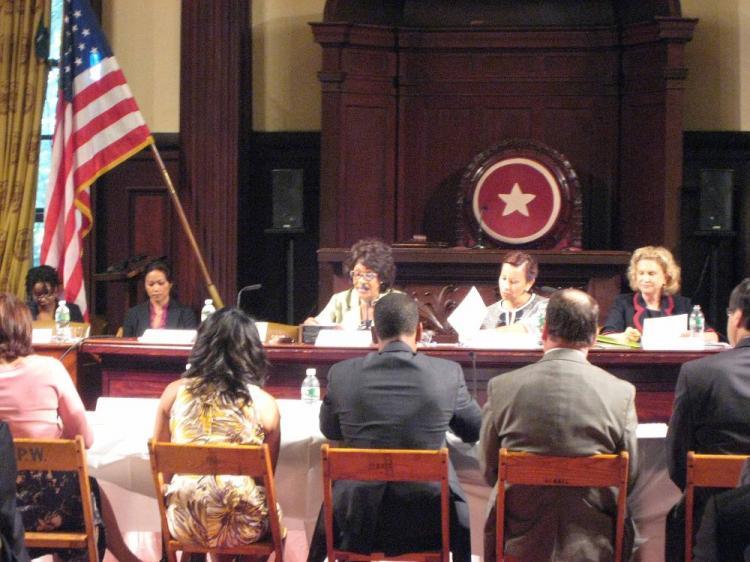NEW YORK—A health care problem is emerging as the number of elderly increases. “The number of family members available to take care of [the elderly] is not keeping pace,” said Congresswoman Nydia Velazquez, and she is proposing to solve the problem by having public housing residents trained as health care aides for elderly people living independently in public and subsidized housing. The proposal could also create jobs and lower the unemployment rate.
The Subcommittee on Housing and Community Opportunity held a Congressional field hearing Monday on Velazquez’s bills Earning and Living Opportunities Act and Together We Care Act of 2009, which address both issues.
Velazquez mentioned that currently, an average one-bedroom apartment in New York costs $2600 a month—$31,200 a year—but the average income of a family living in public housing is only $22,000 a year.
“We must create employment opportunities that move low-wage workers into self-sufficiency, improve distressed communities and foster a renewed sense of self-respect and empowerment,” said Mario Musolino, executive deputy commissioner of the New York State Department of Labor.
Section 3 of the Housing and Urban Development Act was introduced in 1968, and its main goal is to help these people by providing job training and placement, but according to Velazquez it hasn’t worked since Bush senior was the president.
The Earning and Living Opportunities Act seeks to amend Section 3 of the Housing and Urban Development Act of 1968 to better enforce that U.S. Department of Housing and Urban Development-assisted programs meet their law-bidding goals of training and hiring low-income people.
According to the Chairwoman of the Subcommittee and Congresswoman Maxine Waters, if Section 3 is implemented well, it can potentially create over 16,000 jobs each year.
To further create jobs, as well as care for the aging population, Velazquez’s proposed Together We Care Act suggests providing training for public housing residents to become home health care aides so they can care for independently-living elderly people who can’t afford health care.
At present, there are 36 million senior citizens in the U.S., according to the U.S. Census. It is estimated that by 2030, this number will double. Ninety two percent of elderly between the ages of 65 and 74, according to the American Association of Retired Persons, would like to stay at their home instead of senior housing facilities, and the U.S. Census estimated that the family members that are able to take care of them is at only 25 percent of their population. The Paraprofessional Health care Institute suggests that this will lead to a demand for over 400 million direct-care givers in 2016, which is 100 million more than that in 2006.
“[The Together We Care Act] addresses many of the objectives of our workforce development strategy and those of states across the nation,” said Mario Musolino of the New York State Department of Labor.
“Few policy goals are more honorable than preventing the displacement of our elderly and disabled with otherwise unnecessary or premature institutionalization,” and that this bill is, “An innovative way to create jobs for public housing residents while providing meaningful assistance to other residents in need of such services,” said John Rhea, Chairman of New York City Housing Authority.
Musolino said that currently, over 350 organizations in the State of New York can operate home health aide programs. Home health aide programs are required to consist of 75 hours of training, including 16 hours of practical training under supervision.



